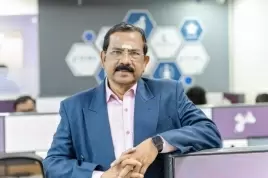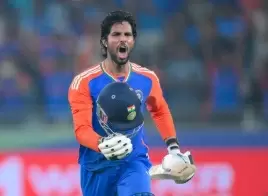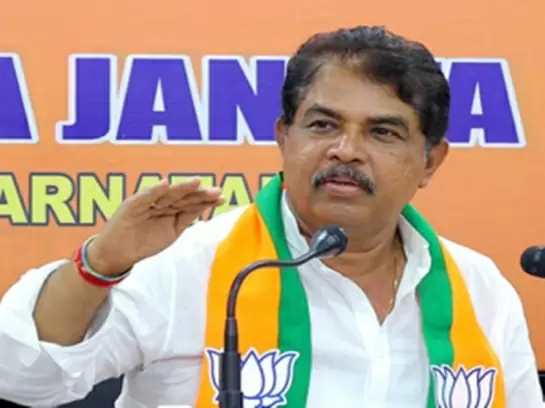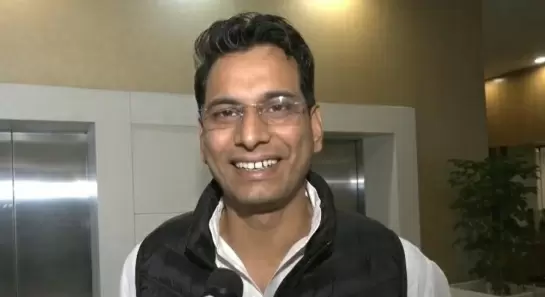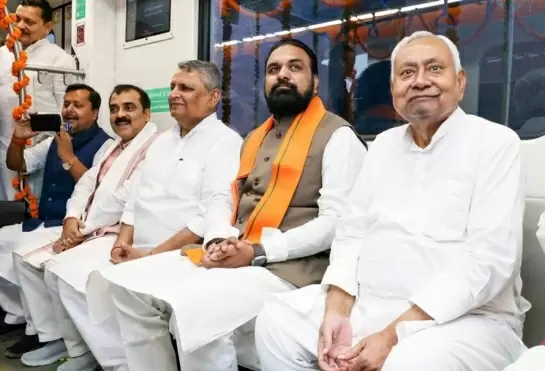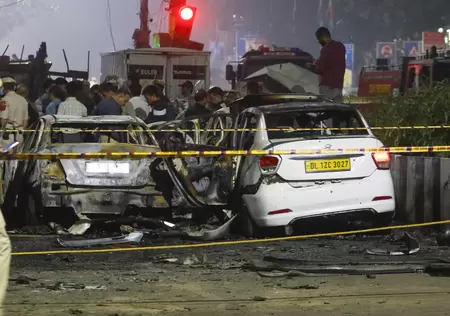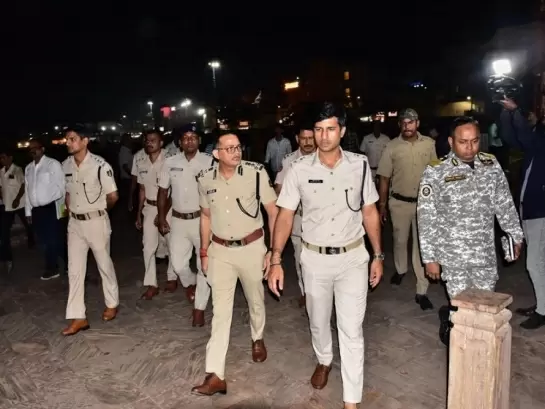‘We Tamils still have to plead with collaborators of the genocide for justice’

05-March-2012
Vol 3 | Issue 9
In January, the UK based Global Tamil Forum (GTF) led a 7 member delegation under Fr. S J Emmanuel to the centenary celebrations of the African National Congress (ANC) in South Africa. Peeved at the invitation to a Tamil diaspora group, the Sri Lankan government had declined to participate at the historic ANC function.
The ANC invitation to GTF came as a morale booster for Sri Lankan Tamil diaspora groups fighting for self-determination rights. Last year, ministers of the Transnational Government of Tamil Eelam (TGTE) were invited to open an embassy in Southern Sudan.
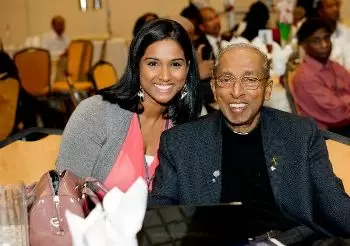 |
|
Fr. S J Emmanuel (right) with Canadian Tamil MP, Rathika Sitsabaiesan
|
These two episodes and the growing support in the international community for an independent international investigation into allegations of human rights violations in Sri Lanka have raised hopes among Tamils all over the world of trying President Mahinda Rajapaksa for war crimes at the International Court of Justice.
Emmanuel has written four books on the Tamil liberation struggle: 'Church, Politics and War in Sri Lanka', 'Let My People Go', 'Agonies and Aspirations of the Tamil Struggle', and 'Continuing Struggle of Eelam Tamils after Mullivaikal' (in Tamil).
In October 2011, Emmanuel was refused entry on arrival in India at the Chennai International Airport, despite having a valid visa to India, issued by the Indian High Commission in Germany.
He spoke to Dr. Paul Newman on wide-ranging issues relating to the Eelam struggle. Excerpts from the interview.
A new political game of advocacy, lobbying and networking has emerged after May 2009, your thoughts on this?
The UN and its sub-structures which were designed after the horrible experiences of two world wars for the future security and peace of the world by the powerful nations of the world are great and worthy milestones in the history of humanity. The Universal Declaration of Human Rights, gave lot of hope for the future of emerging nations, especially after many centuries of colonialism, oppressions and discriminations.
For us the Tamils of Sri Lanka, the last 64 years after the Declaration coincide exactly with our 64 years after independence. To our disappointment, all that we have suffered during these decades – majoritarian- democracy, majoritarian-sovereignty, discriminations , state-terrorism and mass-massacre – have happened under the eyes of these structures.
Hence the UN, its structures and the member-states have not lived up to the goal and spirit of the beginning. Corruption, self-interests, greed for super-power, have overtaken moral values like truth, justice and peace.
Hence advocacy, lobbying and networking on our part, telling the true story of the victims and pleading for justice and peace have become a dirty-game of adjusting to the demands of the powerful, speaking only their diplomatic language and hoping against hope for the best.
Knowing very well that all the powerful of the world including the UN, converged into Mullivaikal to help Sri Lanka, with finance and weapon, to crush not only the militants but also 40,000 civilians, we Tamils still have to plead with collaborators (of the genocide) for justice and hope for a better world.
How do you see the presence of other Diaspora Tamil groups post May 2009? In what way are you different from them?
After May 2009, when the Sri Lankan Governmen and its supporters were having a series of celebrations, we Tamils all over the world, were in a shock and mourning over our dear ones.
The sudden wipe-out of the Wanni-Leadership also created a great vacuum in the diaspora. With never-say-die spirit, we saw that a new phase of the struggle had to be continued.
After a first phase of non-violent parliamentary struggle and a second phase of politico cum militant struggle, now a third phase of non-violent democratic and transparent struggle has to be led by the diaspora.
As a first step the diaspora Tamils through a referendum held in various countries, converged to a consensus called the “Vaddukoddai Resolution“ confirming our common goal that was overwhelmingly voted by the Eelam Tamils in 1976 at the end of the 1st phase of the struggle and carried forward by the LTTE leadership.
There were already country organisations of Eelam Tamils for coordinating activities among themselves as well as to lobby support for the Tamil cause from foreign governments and peoples. The new concept of a Transnational Government of Tamil Eelam (TGTE)was proposed as an organ of the Tamil Diaspora to take the Tamil Cause forward and members were elected for this government.
In the meantime representatives from already functioning country-organisations came together to form a network, a global organisation to engage the international community for the Tamil Cause.
A Constitution for this global organisation was drafted to work as a democratic non-violent and transparent organization vis-a-vis the international community.
The inauguration of the Global Tamil Forum within the British Parliament Buildings signalled the historic role of Britain in this conflict. Hence all the diaspora organisations function in parallel directions, having a strategy of their own to achieve the same goal of liberation and freedom for the Eelam Tamils and their Homeland.
What according to you is the role of India in Sri Lanka?
India has a vital and unquestionable role to play in resolving this conflict and establishing a peaceful co-existence of all peoples on that island.
Historically we all must have moved down from India. But colonialism ended with a British-blunder of an unitary-state centralised in Colombo with all the powers in the hands of the majority Sinhalese. Consequently we Tamils suffered all forms of discriminations and deaths in the hands of the majority Sinhalese and their governments. Though we received sympathy and solidarity from Tamil Nadu, Delhi was interested in keeping relations with Colombo and preserving the unity of India without any separatist tendencies.
Delhi also used us Tamils to checkmate Colombo to fall in line with its super-power mindset. The unsuccessful mission of Delhi in the form of Indian Peace Keeping Force, the unsuccessful attempt of the Sinhala naval on Rajiv Gandhi’s life, and later the unfortunate blunder of killing Rajiv Gandhi in Tamil Nadu, added to making India’s role in resolving the conflict more complex and difficult.
Colombo, notwithstanding the unsuccessful attempt of the naval rate on Gandhi’s life, succeeded in making Delhi and the whole of India to see the Eelam Tamils as murderers of Rajiv Gandhi.
We Eelam Tamils still look up to the India of Mahathma Gandhi as our beloved ancestral homeland and expect India to return to the moral and religious values which laid the foundation of independent India and not to go pleasing and protecting neighbouring Sri Lanka even after the mass massacre of May 2009.
Any idea why you were deported from India, despite your organization being a firm believer in democratic values and non-violence?
As a catholic priest, and former Vicar General of Jaffna Diocese, I have been to India several times-to meet my Roman colleagues, some of them Bishops now. As an Asian theologian serving the Asian churches I have been to India to conduct and participate in many seminars during 1984-1986.
I have known several Indian church leaders cardinals and bishops. And during my last visit in Feb.2011, I addressed the Tamil Nadu Bishops Conference and students of the University of Madras and Loyola College explaining our plight to them.
I have never taken part in any political meeting or had met Indian politicians. Still shockingly on the 11th Oct.2011, while holding a multi-entry visa for India I was refused entry into Chennai without any reason!
I have written to the Governor of Tamil Nadu, the Immigration Authorities in Chennai and to the Indian High commissioner in Berlin, but I have got no reply from any of them giving a reason for denying entry.
I was elected President of the Global Tamil Forum in Feb 2010 and I have visited India twice after that without any difficulty.
The only reason I could imagine for the refusal of entry is the latest malicious propaganda of the Sri Lankan government through DVDs depicting me as “a supporter of terrorism“. I am still a catholic priest working in the German diocese of Münster. Anyone can check my identity.
I look forward to visiting India, not as a politician, but as a priest victim and witness to present the Tamil-cause to New Delhi and get India’s support for our cause.
Can you share your experience of leading a team to the centenary celebrations of the ANC?
I have been to South Africa several times from 1997. I have met Archbishop Desmond Tutu and got the support of this Nobel Peace Laureate for peace and through him contacted the Government in Pretoria for possible South African mediation in our conflict.
But the Sri Lankan media even then said that I had gone to collect finance for the LTTE! I was in Durban for the World Conference against Racism.
The GTF invited the ANC to be at its Inauguration in Feb 2010 in the British Parliament. Since then we have been in contact with one another and with some ministers of the government.
We gladly accepted the invitation to attend their centenary celebrations. It is alleged that the Sri Lankan Govt. was displeased and decided not to come there for the celebrations. The Tamil National Alliance ( TNA) was also invited and both the TNA and the GTF met with some VIPs from the Government as well as from the ANC and NGOs to discuss events in Sri Lanka and how the South African government could help at the international level towards a peaceful solution to the conflict.
South Africa and its leaders like Nelson Mandela and Archbishop Tutu have gained a unique name especially among the non-aligned nations for their valuable help to smaller nations which are still struggling.
How do you compare the report of the UN Panel of Experts with the report of the Sri Lankan government’s Lessons Learnt and Reconciliation Commission (LLRC)?
There can be no true comparison between the two. The UN Panel Report stands out for its independence, international composition of authors, and the free and open manner in which objective evidence was collected and the right advisory manner it was written to help resolving the conflict and war on the basis of truth, justice and accountability.
But the LLRC is the report of a Commission, appointed later in the midst of cries for accountability, by the President himself – the prime culprit – who got former government servants like the Attorney general to study the matter without probing any crimes with respect to the war, but to collect lessons from looking into a limited period of the conflict.
What is your expectations from the 19th Sessions of the UNHRC?
From my experience of how resolutions are passed in the UNHRC sessions, I do not expect much out of these Sessions. In May 2009 all the nations consented and converged into helping Sri Lanka with finance and weapons to crush, even with questionable methods and weapons, the LTTE leadership and the 40,000 civilians at Mullivaikal.
Soon afterwards these nations, realising foul-play during the last stages of war on the part of the fighting forces, brought a resolution against Sri Lanka questioning alleged criminal activities. But Sri Lanka took a position with Russia, China and anti-western forces to defeat the western world. The western world was humiliated and defeated. But we Tamils have only one position- the position of Truth and Justice.
Hence we go on with our struggle watching and supporting new attempts in our favour however little they may be.
Our desired objective is that the UNHRC tables the UN Panel Report for discussion and calls for an independent international investigation of war crimes by both sides of the conflict.
Sri Lanka does not want to face the whole truth nor does it want to implement its own Report in full. Only international pressure can help resolve the conflict in Sri Lanka. We will continue to question the conscience of the international community for justice.
What is your future course of action towards seeking justice for the Tamils of Sri Lanka?
The Tamil Struggle is born out of the collective conscience of a people, oppressed and denied their basic human rights. It is independent of the man-made structures for security, governance, world-order etc. It is based on divine values of truth and justice and will go on beyond the walls of institutions, crying out, and hurting the conscience of the powers that be.
Dr. Paul Newman holds a Doctorate of Philosophy on ‘Internal Displacement and Human Rights situation in Northern Sri Lanka from Bangalore University. He was one of the four public speakers at the Permanent People’s Tribunal on War Crimes against Sri Lanka
Also Read
'India needs to review its Sri Lankan policy'



